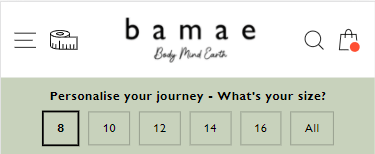The internet has allowed for technological, economical and social progress on a scale previously thought unimaginable. However, when it comes to accessibility and safety for girls and women there is still a long way to go.
One recent study by Plan International, a humanitarian organisation concerned with equality for girls and children’s rights, found 58% of the female respondents between 15-25 had been the victim of some form of online harassment or abuse, which included derogatory language, targeted humiliation, body shaming and threats of sexual violence.
The creator of the Web, Sir Tim Berners-Lee, highlights this issue as part of a ‘growing crisis’ affecting girls and women on the internet. As well as the issue of users feeling safe, there are greater implications for online misogyny that requires creative and large-scale solutions. Head of Plan International, Birgitte Albrectsen feels it limits girls’ ‘freedom of expression’ and ‘damages their ability to be seen, heard and become leaders’. Those who do make into power have to contend with a much greater quantity of abuse, in a phenomenon now being categorised as violence against women in politics (VAWP). This includes attempts to threaten, silence or intimidate female politicians online – something which particularly affect younger women and women of colour.
However, even when users aren’t presenting themselves as female, and therefore painting a target on their back, they still have to navigate the wealth of sexist content on social media. If sexist attitudes are abundant in playgrounds and in workplaces then you can easily imagine how on the internet, the unpoliced wild west, they are practically unavoidable. This affects even those who are not deliberately posing as women online. When a woman faces abuse merely for having an opinion, or appearing on media, it contributes to a culture of intimidation that deters spectating women from appearing in any form on the internet, let alone speaking up about sexism – still a contentious subject among many.
It is why movements such as #metoo and Time’s Up have been so significant: not only have they empowered and enabled women to break the long held taboos around casual and extreme sexism, but they’ve shown that social media can be a force for social good.
Despite this, there is still an urgent need for new legislation that keeps up with the complex and constantly developing world of communication tech. There is the issue of trolls often not being held accountable, despite behaving in a way that would lead to police intervention in the real world for posing a tangible threat to women. As Labour’s Yvette Cooper said: ‘Today the internet is our streets and public spaces.’ It is impossible to ignore the abuse, as is often suggested, because not only is the internet an integral part of our lives, but online misogyny both stems from and spills into the real world. What some have advocated is for misogynistic or sexually violent messages to be classified as a hate crime, just as harassment against somebody targeting their religion, sexual orientation or race is already – a label that has the potential to acknowledge the issue more acutely, to distinguish it from less specific forms of violence, harassment or abuse. Though this has currently faced opposition in Parliament, there has at least been a recognition of misogyny as a hate crime by several constituent police forces, and the sense of a shifting paradigm in how we view abuse against women.
Of course the responsibility also falls on the platforms themselves. Facebook, a breeding ground for misogynistic behaviours, has acknowledged the issue whilst admitting that they often don’t remove abusive comments. It begs the question: is this a problem with policy, or infrastructure – and to what extent can a clampdown be enforced by the government? Looking at the large operations to exposeThe problem with this thinking is that it ignores the silencing effect of misogynistic behaviour, which, in effect, limits the free speech of many women. In order to have a democratic space fit for healthy discussion the first step is to make sure it is safe and accessible for all participants.
Not that legislation will be able to achieve this on its own – it would simply be another milestone in the large scale effort to tackle the myriad of issues with our culture, which is ultimately the root of misogyny.
While advocates for female rights and victims want to hold perpetrators accountable, they are mainly concerned with something less vindictive yet somehow more challenging: changing attitudes. This must in part come from enabling women to speak out in real and online spaces, from encouraging discussion between everyone and by all of us trying to address sexism when we see it.
Even though studies have suggested that sexism has only intensified as we’ve become more reliant on technology over the past couple of years, there is a greater potential for widespread change now because there is a greater recognition of the problem. We can look to landmark projects such as Laura Bates’ Everyday Sexism, or to celebrities continuing to take the discussion out of the dingy corners of the internet and into the mainstream, or to the journalism and social media’s ability to hold people accountable and find encouragement, however, in the end the work we must do will not be glamourous. To create and maintain a safe environment for women will take the cooperation, and empathy, of everyone. It will take a will to change by the largely male perpetrators of online abuse to afford girls and women the luxury of existing online without being infringed upon. This is what is meant by achieving equality for women now – affording them the right to quite simply get on with it, thank you very much!




